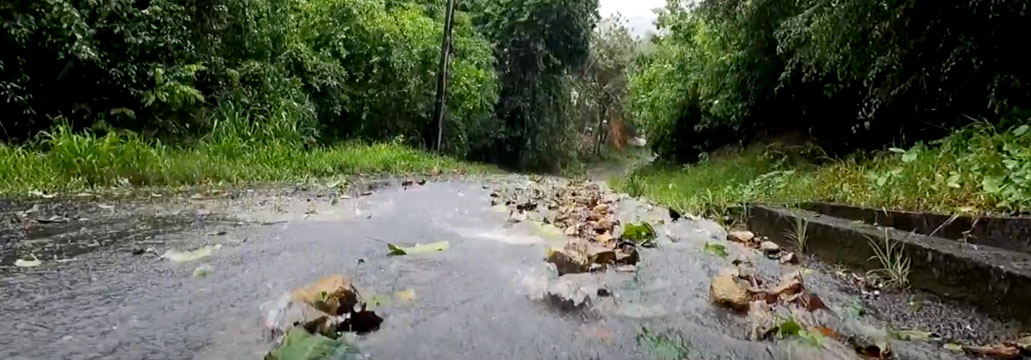USAID/Eastern and Southern Caribbean’s Regional Symposium Urges Immediate Action on Climate Change in Caribbean
Media Release
The Eastern and Southern Caribbean (ESC) countries are on the front lines of the climate crisis, experiencing some of the most severe impacts of climate change, ranging from prolonged periods of drought to increasingly strong tropical storms and hurricanes. These challenges are taking a toll on the region’s economic growth and health outcomes, which particularly affect vulnerable groups like women and children, and are further compounded by the effects of the COVID-19 pandemic.
The U.S. Government is putting the spotlight on the climate crisis, re-entering the Paris Agreement and renewing regional partnerships for climate action. As part of this commitment, the USAID ESC Mission hosted a virtual symposium in June 2021, convening regional stakeholders and experts to share their experiences and identify climate action priorities in preparation for COP26.
The Symposium opened with the signing of a Memorandum of Understanding between USAID/ESC and regional partners, the Caribbean Community Climate Change Center, the Caribbean Institute for Meteorology and Hydrology, and the Caribbean Disaster Emergency Management Agency to strengthen the resilience of the region to the impacts of climate change.
Over the course of three weeks and eight sessions, the USAID/ESC Climate Symposium brought together climate scientists, youth activists, funders, United Nations representatives, public health experts, regional policymakers, USAID Mission staff, and others to outline impacts of climate change on nearly all facets of life in the Caribbean, share current and planned initiatives including funding and insurance mechanisms, highlight youth perspectives and engagement, and provide recommendations for future climate action. To demonstrate the renewed U.S. commitment to climate action, several U.S. Ambassadors and Embassy staff also spoke about the U.S.’s efforts to combat climate change in the region.
The audience included representatives of U.S. Embassies and Government agencies, CARICOM (Caribbean Community), the Organisation of Eastern Caribbean States Commission, regional climate organizations, academia, ESC regional governments, and youth organizations from 31 countries, including 10 ESC countries and seven other Caribbean countries.
Several common themes emerged across the eight sessions:
- Collaboration across sectors, country borders, and institutions is necessary to build a resilient ESC region.
- Climate change and COVID-19 disproportionately affect the most vulnerable populations, including women and children, Indigenous Peoples, non-binary people, people with disabilities, and fisherfolk. Social resilience must be built into all planning for health systems, disaster management, and climate change, and vulnerable groups must be fully engaged in climate planning processes.
- Ambitious funding is needed for ambitious climate action. The Caribbean needs greater access to climate financing overall and needs access to different funding types. To reach the most vulnerable residents, it is essential that funding is granted to community organizations, not just governments and large institutions.
- Decision-making must be informed by science, and climate measures must be tailored to the regional context.
- Climate adaptation requires a mix of “hard” and “soft” measures such as engineered approaches and ecosystem-based approaches like mangrove or coral reef restoration.
- Youth have the energy and enthusiasm to confront the climate challenge; it is important to engage them in climate planning at various levels and to invest in building their capacity.
- The region expects strong U.S. leadership on climate change, particularly on climate financing commitments.
- Well-planned, early adaptation action saves money and lives.
The resulting report on the Symposium includes key takeaways from each session and extensive links to further resources.
As Clinton D. White, Regional Representative for the USAID ESC Mission, said in the Symposium’s closing, “the information presented will benefit all of us, citizens, governments, the private sector, and donors across the Caribbean, as we grapple to find ways to address the impact of climate change. Let’s make use of it!”
Story by: Christine Chumbler
